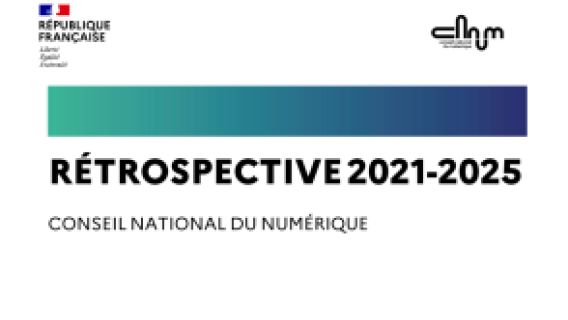Opinion on taxation of the digital economy
The French Digital Council has presented its findings on the taxation of the digital economy to Fleur Pellerin, Minister Delegate for Small and Medium-Sized Enterprises, Innovation and the Digital Economy, and Bernard Cazeneuve, Minister Delegate for the Budget. Approved by the members of the Council, the opinion is accompanied by a report on the consultation held since March, led by Godefroy Beauvallet, Vice-President of the Council. The consultation was built around contributory meetings that brought together more than 120 individuals, including elected officials, businesses and start-ups, professional associations, lawyers, independent administrative authorities, administrators, experts and researchers. Following this process, the Council approved an opinion recommending:
- An immediate initiative at international and sub-European level
- Increased transparency and controls
- Avoidance of the unilateral and immediate implementation of a specific national tax
- The rollout of a European digital industry strategy
Download >> The opinion can be downloaded here
Participatory methodology:
The roadmap of the consultation Each participant received a roadmap that included questions relating to the taxation of the digital economy, to which they were asked to reply, in addition to making a personal contribution. The personal contribution was a prerequisite of their participation in the three meetings organised by the Council. The contributions were examined carefully. They allowed the Council to form a more comprehensive view of the opposing points of view and the prevailing balance of power, but also to identify areas of consensus and issues that arose repeatedly, thereby ensuring a more informed choice.
The three contributory Fridays
The consultation took the form of three contributory Fridays, a time of dialogue and collective thinking among members of the Council’s working group and external participants chosen for their skills or involvement on the subject. The mode of participation was intended to be innovative: the Council did not want to hold hearings, but rather to promote dialogue and reflection among stakeholders.
- The first session was held on 19 April and was attended by some 50 people, including Jacques Sasseville of the OECD and economists Camille Landais (London School of Economics) and Clément Carbonnier (Economic Analysis Council), who set out for the group their view on the issues posed by the taxation of the digital economy. These presentations were very rewarding, especially for some of the attendees, who were not necessarily aware of the existing legal framework and the various instruments already in force.
- Nicolas Collin was invited to the second contributing Friday on 17 May. He gave a detailed presentation of the Collin-Colin report on the taxation of the digital economy. This session was attended by nearly 70 participants.
- The third session, held on 21 June, was attended by approximately 50 people, including French MP Laure de la Raudière, who gave a talk on the taxation of the digital economy and the implementation of a data termination charge at European level, as well as Senator Philippe Marini and Ludovic Blecher, a Council member, by videoconference. This session focused on the various tax proposals made in the public debate.
The various presentations and the ensuing workshops helped to provide a solid foundation. Consultations were held in the form of working groups: dividing the attendees into several smaller groups made it possible to separate stakeholders with common interests in order to foster dialogue and reflection. The structuring of the consultation over time was done in the manner of an hourglass, first making a diagnosis, then focusing on the Collin-Colin report and finally expanding on any other proposals as well as research specific to the Council (reports suggested in contributions, conferences, international benchmarking, examples of processes of introducing new taxes in the past, etc.). The Council thanks all those who took part in this collective discussion.




